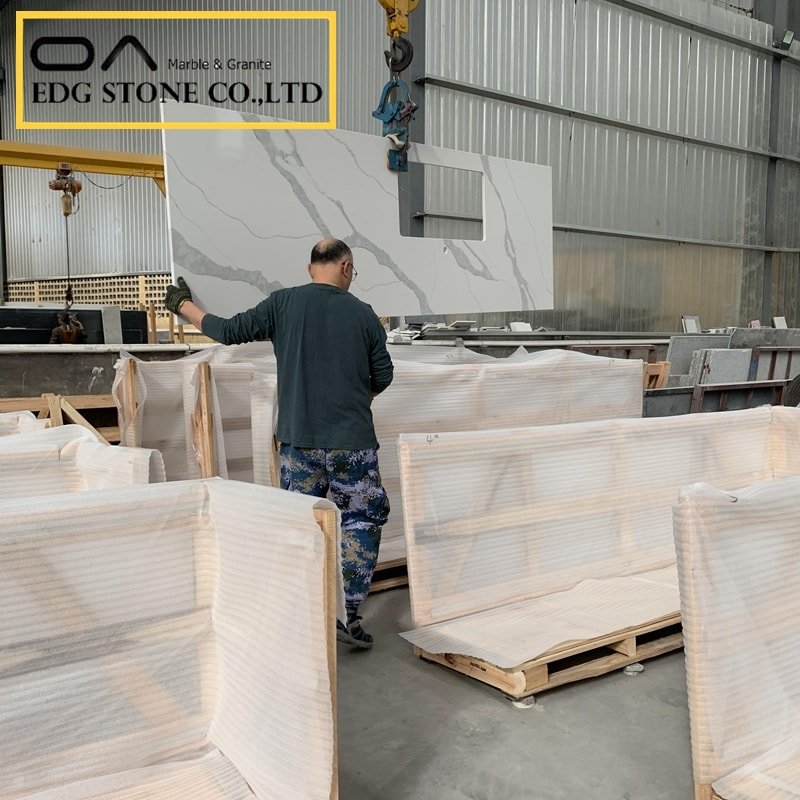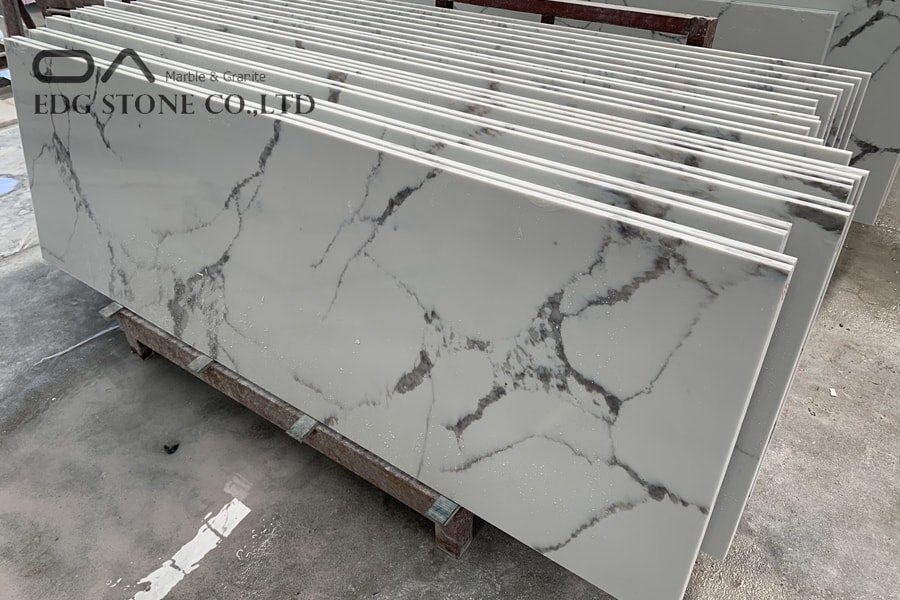Quartz stone has become the most used stone in decorative stone. Quartz stone is made of 93% quartz crystals and 7% resin and other binders and are formed by vacuum high-pressure high vibration. stone. The surface of quartz stone is smooth, dense and non-porous, and rich in color can be comparable to natural stone. At the same time, it has the advantages of certain toughness, no volatile gas, no toxicity, and no radiation, and no color difference in large areas.
Quartz stone can be described as the perfect combination of natural beauty and high technology. The slab is made by pressure casting above 50 tons, the hardness is not less than 5 Mohs hardness, and the density is 2.6g / c m3. The water absorption rate of quartz stone is only 0.02%, and it has the function of resistance to penetration. The slab is cured at a high temperature of 150 degrees, so it has a high-temperature resistance function. The quartz stone slab can withstand a high temperature of up to 300 degrees.
Speaking of a quartz stone slab can withstand the high temperature of 300 degrees, many people will have their own views, quartz stone manufacturers show customers the relevant documents show that quartz stone can withstand 300 degrees high temperature. However, in use, the slabs often burst after contact with high-temperature objects. Due to the high hardness of quartz stone slabs, it is difficult to repair after bursting, so everyone has some doubts about the high-temperature resistance of quartz stone.

How many degrees of high temperature can quartz stone slab withstand? I would still say more than 300 degrees because the quartz stone slabs are heated to 300 degrees without any change. Many people will ask why contact with the hot pot in life will cause a burst! Quartzite is a brittle polymer composite material, which has certain thermal expansion and contraction characteristics. When the plate is partially heated, the internal stress caused by thermal expansion and contraction will burst. Therefore, the whole quartz stone plate is heated at more than 300 degrees, but local heating will explode due to thermal expansion and contraction.







